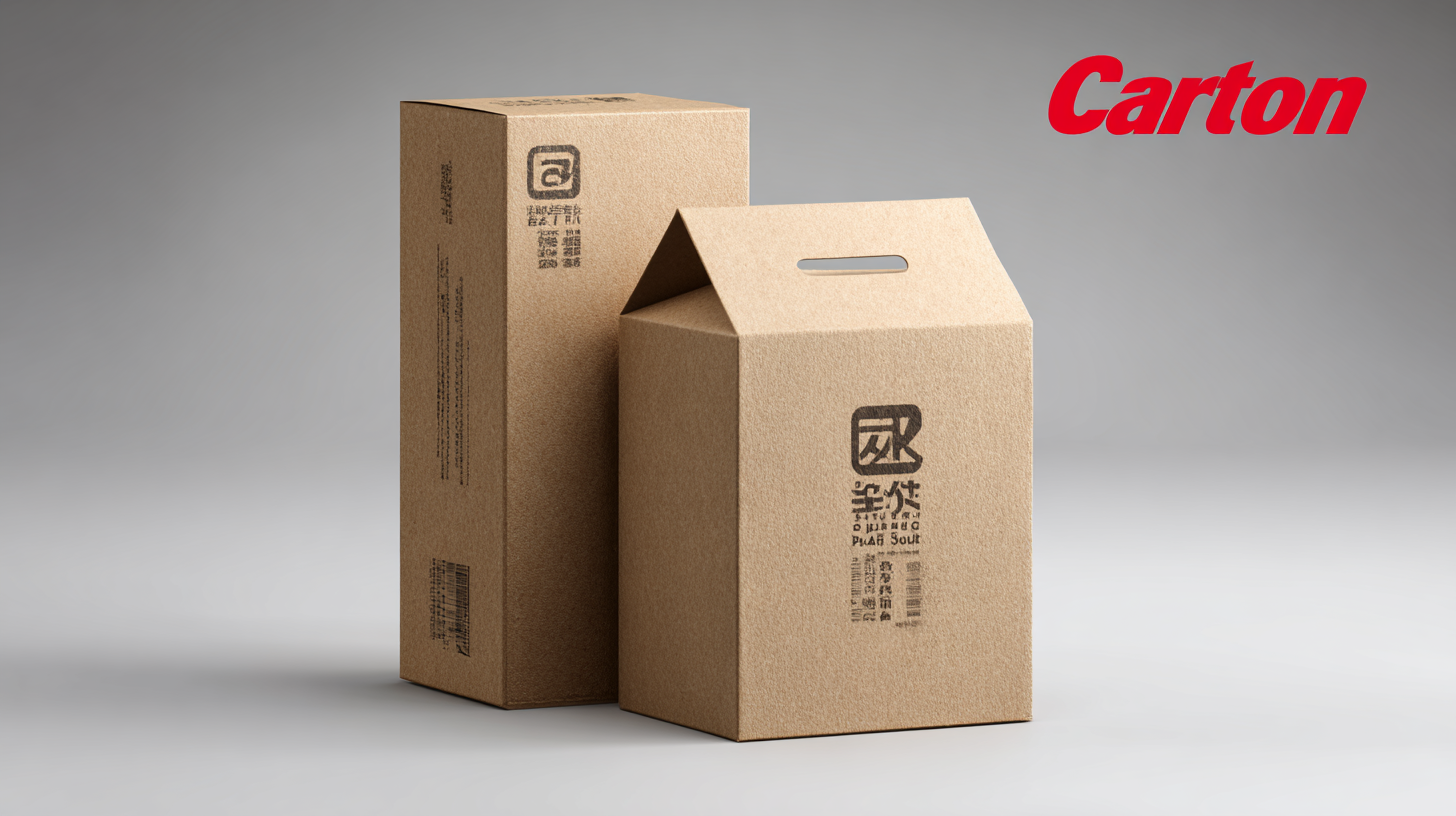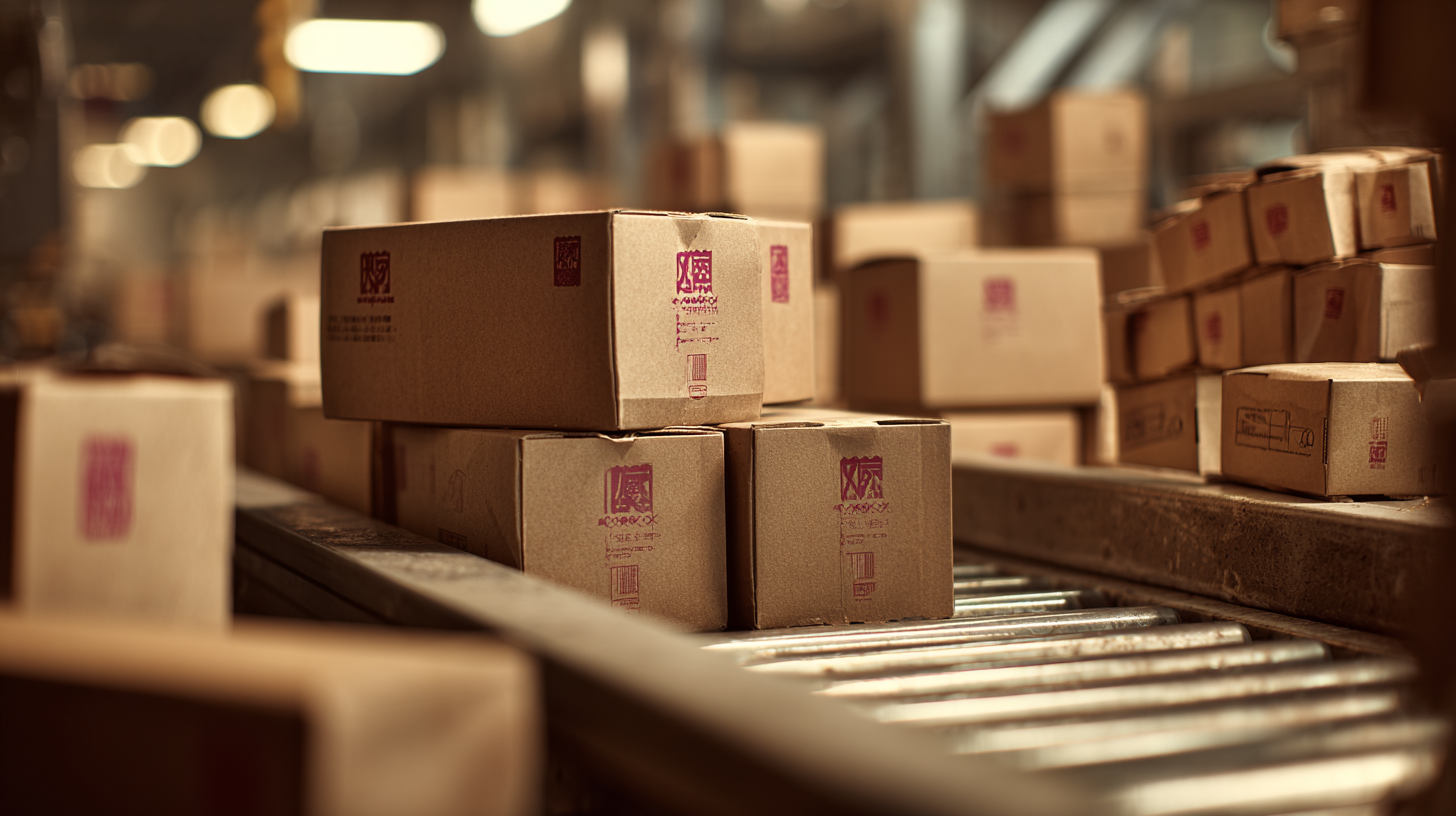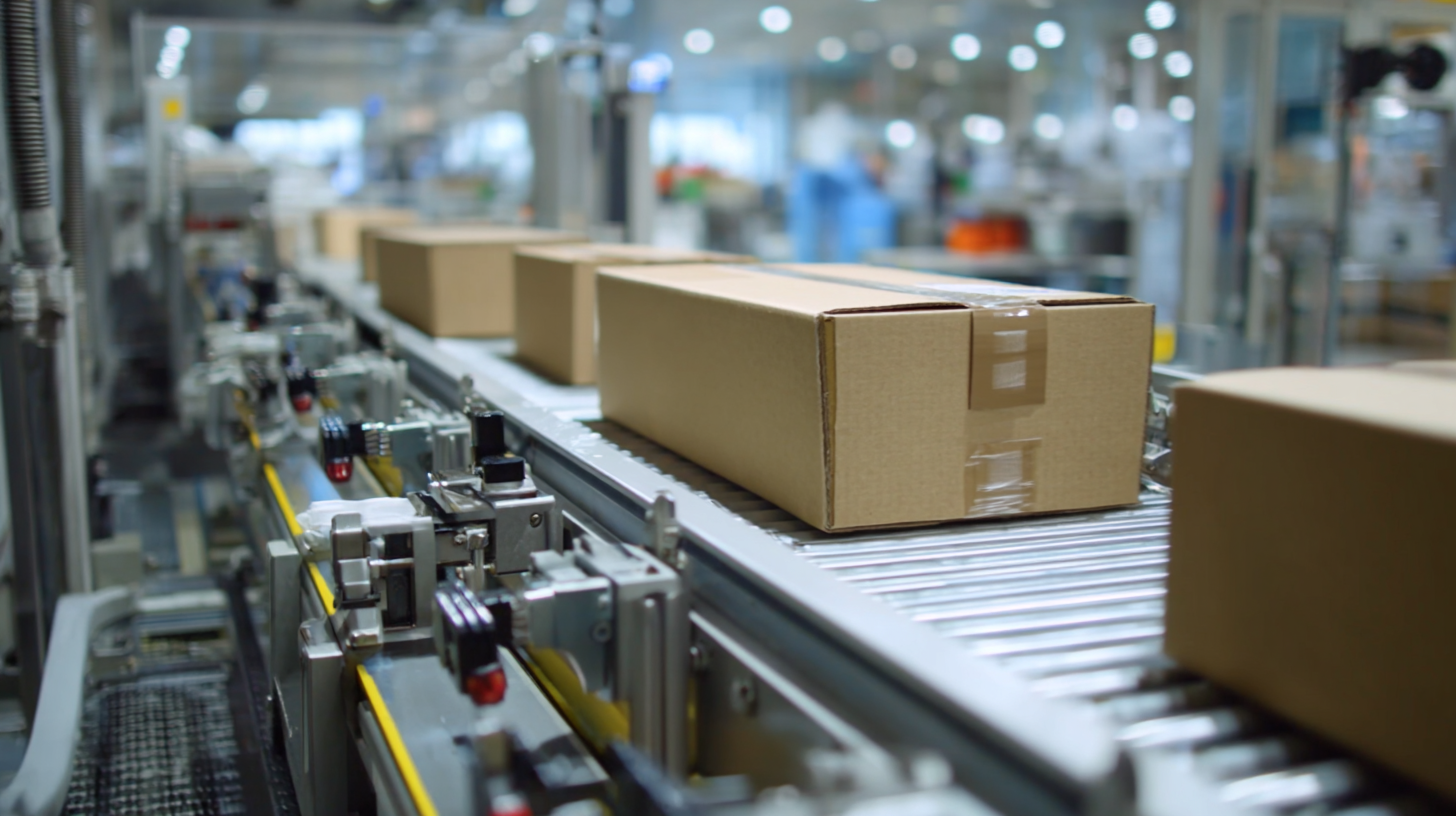Effective Approaches for Superior Carton Packaging Solutions
In the ever-evolving landscape of global trade, carton packaging plays a critical role in ensuring the safety and integrity of goods during transit. According to a recent report by Smithers Pira, the global market for carton packaging is projected to reach $280 billion by 2025, driven by a surge in e-commerce and increased demand for sustainable products. As businesses navigate the complexities of international trade, understanding the industry's import and export certification processes becomes paramount. Effective carton packaging solutions not only enhance product protection but also comply with regulatory requirements, ultimately impacting a company's bottom line. This blog will explore superior approaches to carton packaging and examine how adherence to industry standards and certifications can foster operational excellence in a competitive marketplace.

Innovative Materials Driving the Next Generation of Carton Packaging in China
The evolution of carton packaging in China is heavily influenced by the adoption of innovative materials that cater to the growing demand for sustainability and efficiency. Recent industry reports indicate that the use of eco-friendly materials is expected to grow by 25% annually, driven primarily by the increasing awareness of environmental impact among consumers and businesses alike. Materials such as recycled paper and biodegradable plastics are gaining traction, allowing companies to enhance their brand image while meeting regulatory requirements.

Tips for selecting the right materials include conducting a thorough life cycle assessment to understand the environmental impact of packaging options. Additionally, consider collaborating with suppliers who are committed to sustainable practices, as this will not only ensure better quality but also foster innovation in design.
Another vital aspect is the integration of smart packaging technologies. The intelligent utilization of sensor materials can improve inventory management and enhance consumer engagement by providing real-time information about the product. As companies move toward adopting these next-generation materials and technologies, they set themselves apart in a competitive market while significantly reducing their ecological footprint.
Market Trends: China's Export Dominance in Carton Packaging Solutions
China continues to assert its dominance in the global carton packaging solutions market, driven by robust manufacturing capabilities and innovative design approaches. According to a report by Mordor Intelligence, the global cardboard packaging market is expected to grow at a CAGR of 5.2% from 2021 to 2026, with China's share projected to account for a significant portion of this growth. The rapid expansion of e-commerce, particularly during the post-pandemic era, has further propelled the demand for efficient and durable packaging solutions, positioning China as a leader in meeting these evolving needs.

In 2022, the export value of carton packaging solutions from China reached approximately $20 billion, showcasing the country's ability to produce high-quality products at competitive prices. As businesses increasingly seek sustainable and cost-effective packaging options, China's advancements in eco-friendly materials and automation technologies play a crucial role in enhancing production efficiency. Market players recognize that leveraging these trends will not only improve their product offerings but also align with the growing consumer preference for environmentally responsible packaging solutions. With a focus on innovation and quality, China's carton packaging industry is set to maintain its pivotal role in the global market.
Sustainability Practices in Carton Packaging: The Future of Chinese Manufacturing
In recent years, sustainability has emerged as a critical concern within the manufacturing sector, particularly in China’s carton packaging industry. As global awareness of environmental issues heightens, there is a growing demand for manufacturers to adopt eco-friendly practices. This shift not only addresses consumer preferences for sustainable products but also aligns with stricter regulations aimed at minimizing waste and reducing carbon footprints. By incorporating recycled materials, implementing cleaner production processes, and optimizing supply chains, Chinese manufacturers can significantly enhance the sustainability of their carton packaging solutions.
Moreover, the future of carton packaging in China is increasingly focused on innovation and technology to improve sustainability outcomes. For instance, the use of digital printing technologies allows for more efficient production runs with less waste, while advances in biodegradable materials are paving the way for greener alternatives. Embracing automation and smart logistics can further enhance efficiency, allowing companies to reduce their resource consumption. As the market continues to evolve, those who prioritize sustainability will not only meet regulatory requirements but also gain a competitive edge, positioning themselves as leaders in the global packaging industry.
Effective Approaches for Superior Carton Packaging Solutions
This chart showcases the percentage of sustainable practices in carton packaging among various regions in China. The data reflects the growing trend towards environmentally friendly manufacturing practices.
Optimizing Supply Chains: Enhancing Efficiency in Carton Packaging Exports
In today's global market, optimizing supply chains has become essential, particularly in the realm of carton packaging exports. According to a report by Smithers Pira, the global carton packaging market is projected to reach $300 billion by 2026, driven largely by increased consumer demand for sustainable and efficient packaging solutions. This growth highlights the importance of employing effective strategies that not only enhance product protection but also streamline logistics processes.
One of the most effective approaches to optimizing supply chains is through the adoption of just-in-time (JIT) inventory systems. By reducing excess stock and allowing for quick response times, companies can minimize warehousing costs and improve delivery schedules. Research from the Supply Chain Management Review indicates that firms utilizing JIT methodologies have seen a 20% reduction in operational costs associated with inventory management. Furthermore, integrating advanced technologies such as automation and IoT can enhance visibility throughout the supply chain, allowing businesses to monitor carton packaging flows and identify bottlenecks in real time, ultimately leading to more efficient exports.
Effective Approaches for Superior Carton Packaging Solutions - Optimizing Supply Chains: Enhancing Efficiency in Carton Packaging Exports
| Dimension | Description | Value | Improvement (%) |
|---|---|---|---|
| Packaging Material Type | High-performance cardboard | 1000 tons/year | 15% |
| Average Shipping Time | Time taken from packaging to delivery | 7 days | 10% |
| Cost Reduction | Decrease in packaging related expenses | $50,000/year | 12% |
| Customer Satisfaction Rate | Feedback score from clients on packaging | 92% | 20% |
| Return Rate of Products | Percentage of products returned due to packaging issues | 2% | 8% |
Case Studies: Successful Implementations of Advanced Carton Packaging Solutions in China
The advancements in carton packaging solutions have reshaped how businesses operate in China, particularly in manufacturing and e-commerce. A recent report from Smithers Pira highlights that the Asia-Pacific region, led by China, is expected to experience a compound annual growth rate (CAGR) of 4.7% for the carton packaging market between 2021 and 2026. This growth is predominantly driven by innovative materials and automation technologies, which enhance efficiency and sustainability in packaging processes.
Case studies from prominent Chinese companies demonstrate the successful implementation of sophisticated carton packaging solutions. For instance, a leading electronics manufacturer adopted smart packaging systems that utilize Internet of Things (IoT) technology to track inventory in real-time and reduce waste. This initiative resulted in a 30% decrease in logistical costs and improved delivery accuracy.
Another notable example is a major online retailer that revamped its packaging to include recyclable materials, aligning with China's stringent environmental regulations. This switch not only cut down on production costs by 15% but also significantly boosted the company's image among eco-conscious consumers, ultimately increasing sales. These real-world applications underscore the importance of adopting advanced carton packaging solutions to stay competitive in today's market.
